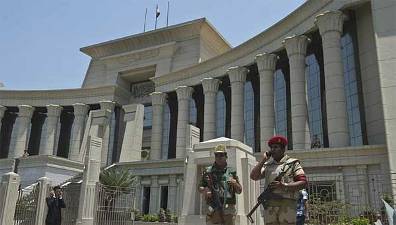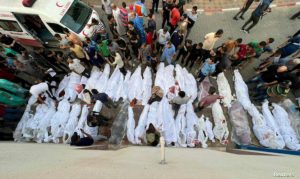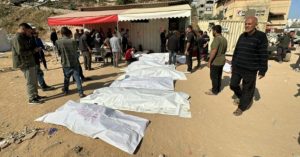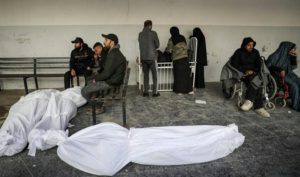Cairo, 1 Shaban 1436/19 May 2015 (MINA) – Fatah expressed its refusal to intervene or comment on an Egyptian court’s decision to refer the papers of Palestinian martyrs and prisoners to the Grand Mufti to consider the death sentences handed to them, describing the Egyptian judiciary as “ancient”.
In exclusive statements to Quds Press, the Secretary of Fatah’s Revolutionary Council, Amin Maqboul, stressed that his movement refuses to intervene in the Egyptian judicial decisions which he considered “an internal affair that cannot be commented on”.
He denied knowledge that Palestinian martyrs and prisoners were included in the list of those defendants whose papers were referred to the Mufti. Middle East Monitor (MEMO) quoted by Mi’raj Islamic News Agency (MINA) as reporting.
Fatah leader, Yahya Rabah, described the Egyptian judiciary as “ancient and great”, adding that “any Palestinian politician cannot intervene or comment on an Egyptian judicial decision, and it is essential to take advantage of the wide range of judiciary opportunities for appealing against the death penalties against Palestinian prisoners and martyrs.”
Also Read: British Activist Nears End of 6.5-Month Walk From UK to Istanbul to Support Palestinians
In a statement to Quds Press, Rabah said the problem could be solved through the judiciary and “not by pouring oil on the fire or launching insults and curses against Egypt and its judiciary,” demanding Palestinians “stop the political Twitter campaigns against the Egyptian regime and not to forget the Egyptian relationship with the Palestinians.”
Rabah noted that the Egyptian judiciary has multiple degrees of litigation, pointing out that those who reject its decisions can appeal and present recourse, which is what happened in the initial anti-Hamas movement verdict which considered the group a “terrorist” organisation; the decision was criticised by another court.
On Saturday, the Cairo Criminal Court referred the papers of 126 defendants involved in the cases of “spying” and “storming Natrun prison” to the Grand Mufti for his opinion on the executions.
The prisoners include ousted Egyptian President Mohamed Morsi, the Supreme Guide of the Muslim Brotherhood Mohamed Badie, his deputy Khairat Al-Shater, in addition to dozens of brotherhood members, opponents of the coup and Arab figures from Hamas and the Lebanese Hezbollah.
Also Read: Türkiye Urges Israel to Match Hamas’ Constructive Steps Toward Permanent Gaza Ceasefire
The list included the names of Palestinian martyr Raed Attar, who was killed during the recent war in the Gaza Strip, the martyr Hossam El-sanie, who died in 2008, three years before the outbreak of the Egyptian revolution, in addition to the martyr Tayseer Osnaimah and the Palestinian captive Hassan Salama. (T/P002/R03)
Mi’raj Islamic News Agency (MINA)
Also Read: HRF Files Legal Complaint in Cyprus Against Israeli Soldier































 Mina Indonesia
Mina Indonesia Mina Arabic
Mina Arabic